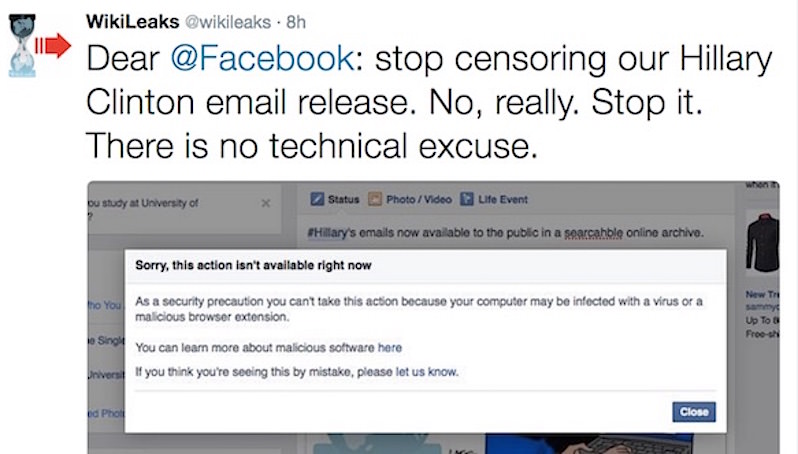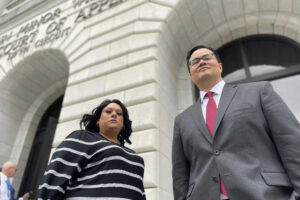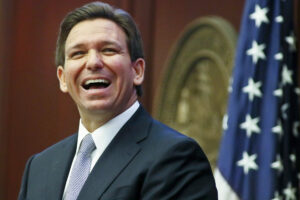WikiLeaks Accuses Facebook of Censorship in Hillary Clinton Email Release
If WikiLeaks' charge is valid, the tech behemoth that Mark Zuckerberg built could effectively be aiding the Democratic presidential hopeful in her efforts to keep those pesky emails from getting between her and the White House. Twitter
Twitter
The Hillary Clinton email scandal was revived once again in the news this week, thanks to WikiLeaks’ release Wednesday of a searchable archive of 30,322 emails pulled from a private account she used during her tenure as secretary of state.
Two days later, WikiLeaks called Facebook on the carpet for allegedly blocking users’ access via the social network to WikiLeaks’ latest Clinton dispatch. If WikiLeaks’ charge is valid, the tech behemoth that Mark Zuckerberg built could effectively be aiding the presidential hopeful—and since well before Super Tuesday III, the mainstream media’s christened Democratic front-runner—in her efforts to keep those pesky emails from getting between her and the White House.
Here’s a closer look at the dust-up, which was fittingly touched off on social media. Below is the tweet WikiLeaks sent out Friday accusing Facebook of censorship:
Dear @Facebook: stop censoring our Hillary Clinton email release. No, really. Stop it. There is no technical excuse. pic.twitter.com/AMbIUiPkid
— WikiLeaks (@wikileaks) March 18, 2016
Gauntlet thrown. But what does it mean?
The image included below the tweet’s text suggests a sequence of events, visually summed up in a screen shot, in which an unnamed Facebook user spotted WikiLeaks’ story about the Clinton email release and tried to get to the archive by clicking on WikiLeaks’ link as displayed on his or her Facebook news feed. Instead of taking the user to Clinton’s emails, the click produced a pop-up message containing a “security precaution” that warned “your computer may be infected with a virus or a malicious browser extension.”
So far, still cryptic. Much has been written over the years about how Facebook influences newsgathering and consumption patterns in ways that don’t exactly cultivate a politically enlightened public. Media watchers have fretted about how Internet-addled Americans are echo-chambering and cherry-picking away their higher faculties and civil liberties while Facebook eats the world. Defenders of the technology megacorp have brandished disclaimers to the effect that any narrowing of users’ worldviews or news feeds has come about as a result of some combination of individual agency and impersonal algorithms and not deliberate actions on Facebook’s part to influence which stories, not to mention which candidates, are given wide exposure on its hugely influential platform. (See also: hegemony.)
But WikiLeaks apparently doesn’t view Facebook as operating from a default, or no-fault, position when it comes to the Clinton email incident. The language of the accusation clearly points to an intentional attempt to block access to the archive.
Wherever the truth lies in this case, this is clearly not the first time WikiLeaks, or founder Julian Assange, has caught static from a global superpower. The claim is significant, considering the intense scrutiny surrounding Clinton’s emails and that they were obtained as the result of a Freedom of Information Act request. Basing the tweeted allegation on a technical glitch or a one-off error would be the kind of rookie mistake that WikiLeaks, having spent several go-rounds at this kind of rodeo, would be ill-advised to make.
We’re investigating further and will add updates as more details emerge. A request for comment from Facebook’s office was not returned by press time. Meanwhile, more than 30,000 of Clinton’s emails are now available for perusal in a handy archived format — but they might be best accessed directly on WikiLeaks’ site.
–Posted by Kasia Anderson
Your support matters…Independent journalism is under threat and overshadowed by heavily funded mainstream media.
You can help level the playing field. Become a member.
Your tax-deductible contribution keeps us digging beneath the headlines to give you thought-provoking, investigative reporting and analysis that unearths what's really happening- without compromise.
Give today to support our courageous, independent journalists.






You need to be a supporter to comment.
There are currently no responses to this article.
Be the first to respond.